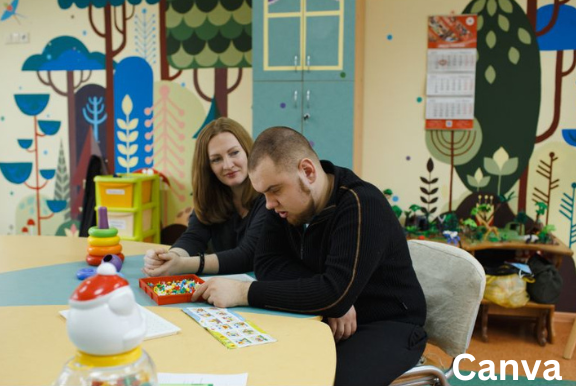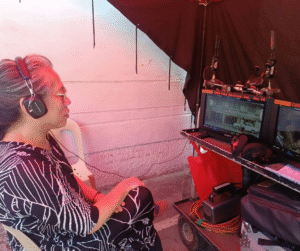Written in partnership with Fairmont Ltd
By William Crossley
The entire care sector is currently facing staffing shortages which have been an ongoing issue for the previous two and a half years. The UK government has outlined the need for measures to reverse this trend and has commissioned the NHS to produce plans for reforms in the care sector.
Teri Homer, residential care manager at Fairmont Ltd, points out that the staffing challenges have had some positive impacts including, “highlighting the quality of staff that do work in the sector…Care sector staff care and go above and beyond to support the individuals in care.”

She also explained that the care sector may not always be well represented, nor the roles within it well communicated. “Make no mistake, it’s not a job you do because it’s a job, you do it because you care.”
Fellow residential care manager Steph Albutt adds that “Because of the impact it can have, care should be celebrated as a career that people aspire to get into when they grow up. If young children were educated on autism and other disabilities, they might aspire to be carers when they grow up.”
Becoming an autism practitioner
As managers, Steph and Teri have aspects of their roles which are all about working with new autism practitioners, and supporting their training and development.
Steph explains that people enter the profession without any care experience and can excel with the support of the training, coaching and mentoring that is available along with an attitude of wanting to learn.

“For new starters, during their 6-month probation period, they would have a two-week shadowing alongside our staff members to observe, get to know some of our service users and most importantly for our service users to see someone around before they start working hands-on with them,” Teri says.
An integral aspect of becoming an autism practitioner is understanding the service users’ needs by studying their care plans and receiving communication training methods that would help with certain individuals – an element of Fairmont’s work in delivering person-centred care.
“When an individual is communicating through a form of behaviour, a whole team of people around the autism practitioner will help to decipher the meaning of the behaviour and make decisions for the appropriate course of action going forward,” says Steph.
A day in the life of an autism practitioner
When discussing what it takes to be an autism practitioner, Teri and Steph share insight into what their day-to-day looks like, stressing that no one day looks the same.
Having a genuine caring compassionate outlook for others and being resilient are the most important skills.

“If a service user presents challenging behaviour and an activity doesn’t go well, our response is to ask how we can modify that for them to have another go and enable them to be successful in doing it in the future,” explains Steph.
Because autism is a spectrum disorder, there is a large variation of activities and tasks involved with the role of an autism practitioner in any setting. This is even more so the case at Fairmont, where being a practitioner includes attending to daily personal and medical needs and taking service users into the community.
“We promote a lot of different activities to meet our service users’ needs. It is important to highlight the fact that there are schedules in place to go out, walking, horse riding, ice-skating, travelling on buses and trains and going to the pub for example,” says Steph.
The rewards of being an autism practitioner
Work in care is regarded by most as a very rewarding role but it is also well-documented that it is a line of work that comes with emotional and physical strain.
“Don’t get me wrong, it’s a wonderful job but it can be really difficult some days…Equally you can have amazing days,” says Teri.

On some of the challenges of the role, Teri says, “Behaviours of concern that some of the individuals can present with can be off-putting. In some cases, their only way to communicate is through physical behaviour, which can, understandably, be scary to people who have never seen it before.”
As to the rewards of working in the sector, Steph and Teri highlight that helping autistic adults to achieve their personal milestones, no matter how large or small, are some of the most uplifting parts of their roles.
Teri rates her job satisfaction very highly. “The satisfaction you get from this job is second to none, if you think about how some of our individuals would cope without the support, well they wouldn’t. Knowing your job is to look after someone to help them have a decent quality of life is amazing…Historically people with autism and many other difficulties wouldn’t have had that,” she says.
Speaking about milestones, Teri reflects, “It is the little things that matter, it makes you not take things for granted because we can do things independently all the time: you realise how lucky we are. It makes you a more compassionate and empathic person when you have an emotional connection to the people you look after, those milestones mean an inordinate amount.”













